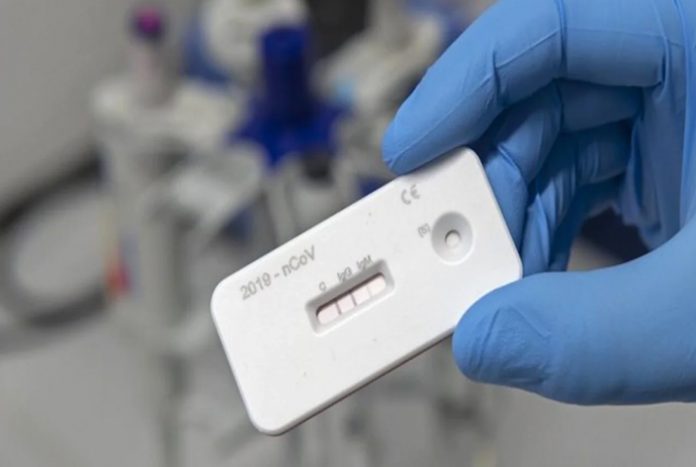
Indian scientists from the Institute of Genomics and Integrative Biology (IGIB) have successfully developed a low-cost, paper strip test that can detect the raging coronavirus within an hour. This will allow increased testing in the country.
This paper-based testing is based on cutting edge gene-editing technology called Crispr to target and identify the genomic sequences of the novel coronavirus in the samples of suspected individuals. It is found to have 96% sensitivity and 98% specificity which means it can detect anyone who has the disease and rule out those who do not. The strip-test has basically the same level of accuracy as PCR testing with quicker turnaround time, less costly equipment, and better ease of use. Unlike the real-time PCR test currently being used for diagnosis of COVID-19 in India which costs about Rs 2400 (around 32 USD), the paper strip test costs less than Rs 500 (under 7 USD). Further, it does not depend on expensive real-time PCR machines for RNA isolation, DNA conversion, and amplification which are already in limited supply.
According to the scientist, unlike most of the rapid tests which require dedicated machinery, this can be performed using standard equipment available in every pathological laboratory.
The test has been named Feluda after a famous Indian detective character. Feluda will be made by a leading Indian conglomerate, Tata, and could be the world’s first paper-based Covid-19 test available in the market.
This is a simple, precise, reliable, scalable, and frugal test,” said professor K Vijay Raghavan, scientific advisor to the Indian government. CRISPR stands for Clustered Regularly Interspaced Short Palindromic Repeats and works like a word processor to detect genetic patterns.
“This strip will be similar to a pregnancy test strip and will not require any specialized skill and machines to perform, as is the case with other PCR tests. This strip will just change color and can be used in a simple pathological lab. The most important part is that it will be 100% accurate,” said Shekhar C. Mande, director-general of CSIR.
Two blue lines indicate a positive result, while a single blue line means the test was negative. While scientists at Stanford University and Massachusetts Institute of Technology have been testing this technology, India is the first country to develop an actual test.
We have been working on this tool for around two years. But, in late January, when the outbreak hit its peak in China, we began testing it to see if it can work for Covid-19. It took us around two months to come up with these results,” said Dr. Debjyoti Chakraborty, from the Institute of Genomics and Integrative Biology (IGIB), CSIR’s premier laboratory in New Delhi.
India’s new paper Covid-19 test could be a ‘game-changer’.




